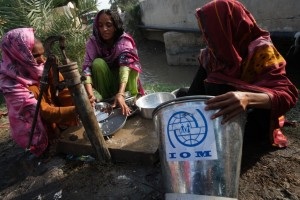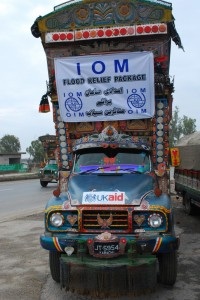 I'm beginning this week in the small landlocked eastern European country of Moldova, talking to representatives of IREX-supported organisations running telecentres and internet access points across the region. We just had a short session on FrontlineSMS, explaining how it works, and starting to come up with ideas for how to use it. Even though we talk every day about how users innovate way beyond our wildest dreams, I somehow still wasn't prepared for the deluge of brilliant ideas coming from the floor! Here are just a few, which the group have generously allowed me to share as inspiration for others thinking about how to incorporate SMS into their work:
I'm beginning this week in the small landlocked eastern European country of Moldova, talking to representatives of IREX-supported organisations running telecentres and internet access points across the region. We just had a short session on FrontlineSMS, explaining how it works, and starting to come up with ideas for how to use it. Even though we talk every day about how users innovate way beyond our wildest dreams, I somehow still wasn't prepared for the deluge of brilliant ideas coming from the floor! Here are just a few, which the group have generously allowed me to share as inspiration for others thinking about how to incorporate SMS into their work:
- In a wide geographic area, liaising with partner NGOs, colleagues, and even the authorities - even if it's just to SMS and point out an important email you sent that day. Where the Internet hasn't yet really taken hold, people often don't check their email accounts every day.
- To let people know about trainings and workshops, or ask them to get involved in campaigns and actions
- To create a feeling of community between schools and kindergartens across a wide area
- To let students know when their scholarship money is ready for collection
- To send information to newly arrived migrants in Kazakhstan, where migration is a high-profile issue; informing them of the law on registration, the contact details of their embassies in-country, and how to get a visa, a work permit, or citizenship
- In a big country, the potential as a research tool and information-sharing tool is huge
- Updating parents about their child's academic performance and behaviour at school.
Participants were also very realistic about the obstacles to using SMS. In countries where SMS bundles aren't common, costs can quickly mount up. In some countries, people often have multiple SIM cards to use across multiple networks as a cost-saving measure - subscription-based services can be a challenge here. And users realised quickly that they had to plan for the service they are considering offering to really take off, so that they would have to resource administrative support for it - but some, such as those proposing parent information services for schools, also saw that they could generate an income to cover this from a small subscription fee for the service.
A final note of caution from me was that in some of these countries, SMS are routinely monitored for political activity not favourable to the government. Where this is the case, organisations need to be aware that mobile services - or even the mobile network - can be quickly shut down, or bulk messaging heavily regulated and the SMS themselves can put both the service provider and the people they are interacting with at risk.
Over the next couple of days I'll be working with individual users on their operational and practical challenges - including types of network, operating costs and staff time - and I'll post further reflections here when I can.







